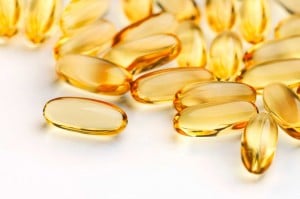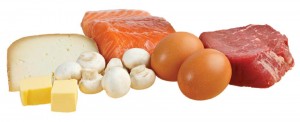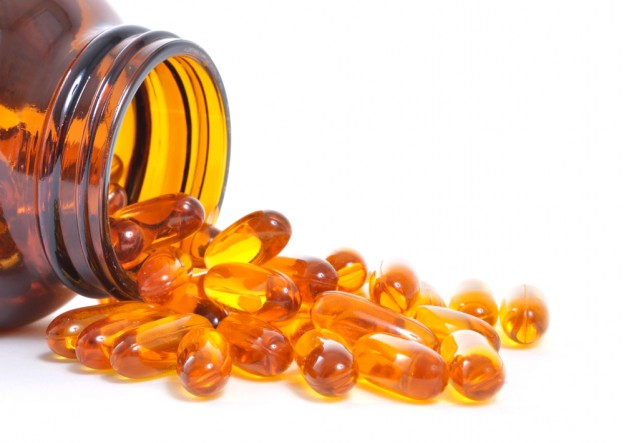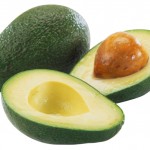By Kevin Cann – Steroidal.com
Vitamin D has been a hot topic in the health industry for quite some time. It has been shown to be a major anti-oxidant and deficiencies have been linked to bone loss, decrease in sex hormones, decreased immunity, and even higher risk for certain cancers. What many people do not know is that vitamin D may be an effective performance enhancing substance.
A meta-analysis performed in 2011 looked at the literature and vitamin D’s effects on strength gains and balance. According to this meta-analysis that looked at 13 studies, it concluded that vitamin D intake between 800iu and 1000iu per day led to positive gains in strength and balance (1).
Older adults have been shown to put on muscle mass taking in various amino acid supplements with no change in strength. However, when the amino acids were given with vitamin D the older adults saw an increase in muscle size as well as strength (2). If this study is reflective upon the younger and more athletic population then some sunlight with your protein shake post-workout would be more effective for strength gains then just the protein.
One reason vitamin D may play a critical role in strength gains is its effects on testosterone. We all know that testosterone is credited with building size and strength. There are receptor sites for vitamin D found in the reproductive tracts of males and supplementation of vitamin D has been shown to increase testosterone levels in overweight males (4).
 Vitamin D not only increases testosterone levels in men increasing their strength, but it may also be a vital substance to losing weight. Vitamin D deficiency without diabetes or thyroid conditions has been shown to be associated with obesity and abdominal obesity (4). In fact, vitamin D may be protective of developing type 2 diabetes (5). This tells us that vitamin D may play a crucial role in glucose tolerance.
Vitamin D not only increases testosterone levels in men increasing their strength, but it may also be a vital substance to losing weight. Vitamin D deficiency without diabetes or thyroid conditions has been shown to be associated with obesity and abdominal obesity (4). In fact, vitamin D may be protective of developing type 2 diabetes (5). This tells us that vitamin D may play a crucial role in glucose tolerance.
All too often we are looking in the wrong places for supplements to help improve our performance and body type. When developing strength programs we always assess our clients to see where their strengths and weaknesses lie. The same should be done nutritionally. How can we expect to maximize performance and gains in the gym if we do not fix any glaring nutritional deficiencies first? You can take all the creatine and protein supplements you want, but if there is a glaring deficiency your gains and performance will not be maximized.
If we have a vitamin D deficiency our immunity to illness will be lower which may affect training intensity and frequency. Our testosterone levels will be lower which will limit the amount of muscle mass we can put on and limit strength gains. It also may limit our ability to lose weight as low vitamin D levels are correlated with higher levels of obesity, abdominal obesity, and type 2 diabetes.
So how can we make sure we have adequate vitamin D levels? This is easy since most doctors check for this on simple lab tests. We want our vitamin D levels to be 50-70 ng/ml according to most of these studies. We can get this amount by spending roughly 20 minutes outside in the sunshine per day between the hours of 10am and 2pm. People in more northern areas may need to spend longer and the darker your skin the less vitamin D that is absorbed.
If you live in a northern location or have a darker complexion then daily supplementation may be beneficial. I recommend people take in between 2000iu and 4000iu per day in the form of vitamin D3. I have found with clients that the liquid versions of vitamin D work much better than the pills. Good food sources of vitamin D are butter, cod liver oil, and fatty fish. Constantly check your vitamin D levels with your doctor and raise or lower the supplement levels accordingly. This is not only beneficial to your overall health, but it can make sure you are maximizing performance in the weight room.
 Vitamin D needs to be in balance with vitamin A. Vitamin A protects against vitamin D toxicity and vice versa. New research is suggesting that vitamin A, D, and K2 are all linked and need to be in proper balance to achieve optimal functioning. This is why it is so important to eat a balanced healthy diet for performance. There is still much we need to learn about nutrients and their balances. The good thing is food from the earth comes with all of these nutrients in their appropriate ratios.
Vitamin D needs to be in balance with vitamin A. Vitamin A protects against vitamin D toxicity and vice versa. New research is suggesting that vitamin A, D, and K2 are all linked and need to be in proper balance to achieve optimal functioning. This is why it is so important to eat a balanced healthy diet for performance. There is still much we need to learn about nutrients and their balances. The good thing is food from the earth comes with all of these nutrients in their appropriate ratios.
Before you go out and spend a ton of money on the next greatest supplement stop and assess your current levels of key nutrients. Vitamin D is an easy one to check and plays a critical role in our overall health and performance. If it is low take a supplement to get it between 50 and 70 ng/ml. Without it your gains may be limited no matter what you do.
References:
[1]. J Am Geriatr Soc. 2011 Dec;59(12):2291-300. doi: 10.1111/j.1532-5415.2011.03733.x.
[2]. JPEN J Parenter Enteral NutrNovember 2011 vol. 35 no. 6 757-762
[3]. Horm Metab Res 2011; 43(3): 223-225
[4]. Endokrynol Pol. 2012;63(3):196-201.
[5]. Diabetes Care June 2011 vol. 34no. 6 1284-1288







